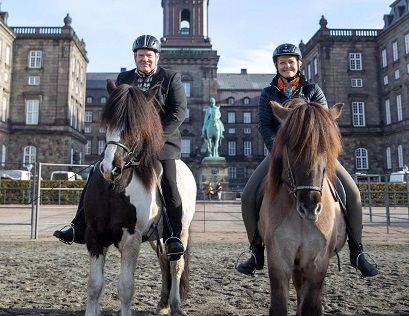Last Sunday, the Danish minister for Nordic co-operation, Eva Kjer Hansen, and Sigurður Ingi Jóhannsson, the Icelandic chairman of the Progressive Party Framsóknarflokkurinn, rode Icelandic horses from Copenhagen’s Christiansborg Ridebaneand to Nordatlantens Brygge in Christianshavn to mark the upcoming 100-year anniversary of the country’s sovereignty.
Horses symbolize friendship
According to Jóhannsson, the horses symbolised Danish-Icelandic relations, which he called a “friendship”.
“The qualities we see in the Icelandic horses – so calm, kind, solid – are also a fitting description of our relationship,” Hansen agreed.
“We’ve got to know each other well over the centuries and have a very good co-operation.”
100 years of independence
In 1415, the united kingdoms of Norway, Denmark and Sweden took over Iceland. Following the break-up of the union in 1523, it became a part of Denmark-Norway, and it was owned entirely by Denmark from 1814 until 1918.
In an agreement signed on 1 December 1918, Denmark recognised Iceland as a fully sovereign and independent state in a personal union with Denmark.
After the union was terminated in 1944, Icelanders established a republic with Sveinn Björnsson as its first president.












